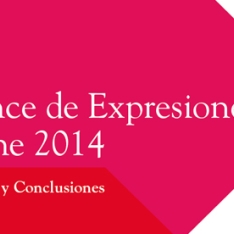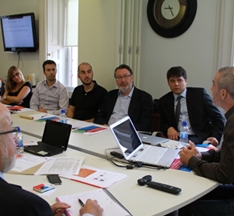Loading...
- Agenda 2030 & ODS (20)
- Alineamiento y Cultura Corporativa (17)
- Analytics & Big Data (7)
- Bienestar y Engagement (3)
- Chief Communications Officer (11)
- Co-Creación (3)
- Comunicación Externa (11)
- Comunicación Política (2)
- Consumidores (14)
- COVID-19 (18)
- Digitalización (63)
- Diplomacia Corporativa (2)
- Diversidad & Inclusión (15)
- Empleados (6)
- Empresa Con Futuro (2)
- Estrategia (19)
- Ética (10)
- Fake News y Desinformación (2)
- Geopolítica (1)
- Global Issues (14)
- Gobierno Corporativo (12)
- Indicadores No Financieros (3)
- Innovación (21)
- Internacionalización (2)
- Liderazgo (19)
- Lobby (1)
- Marca Corporativa (14)
- Marketing (4)
- Medios Sociales (3)
- Millennials (1)
- Propósito & Valores (21)
- Publicidad & Patrocinios (1)
- Rankings & Premios (1)
- Reputación Del CEO (3)
- Reputación País (1)
- Reporting No Financiero (1)
- Riesgo Reputacional (22)
- Sostenibilidad & Responsabilidad Social (23)
- Stakeholder Engagement (15)
- Storytelling & Narrativa (7)
- Tendencias (23)
- Valoración De Los Intangibles (7)
- Comunicación Interna (15)
- Transparencia (19)
Categories
Categories
Published by Unai Admin
17/07/2025
Categories
Published by Unai Admin
17/07/2025
Published by Unai Admin
18/07/2025
Published by Unai Admin
18/07/2025
Published by Unai Admin
18/07/2025
Published by Unai Admin
18/07/2025
Published by Unai Admin
18/07/2025
Página
of 2










